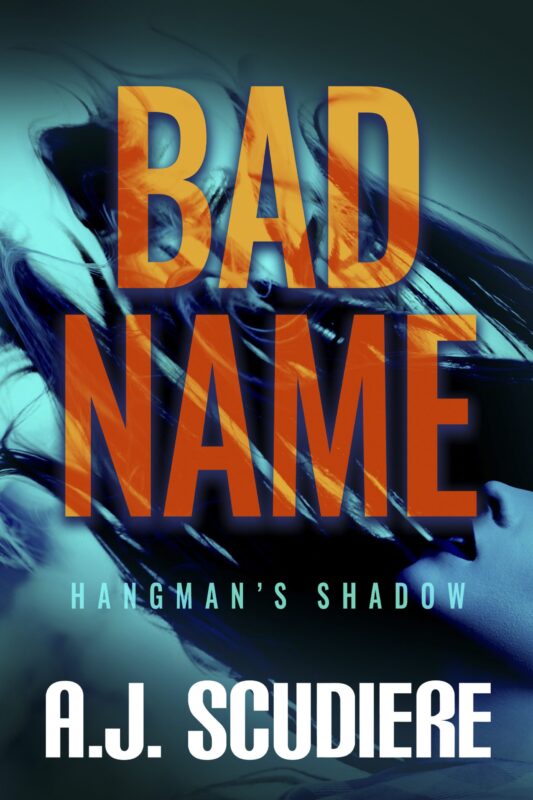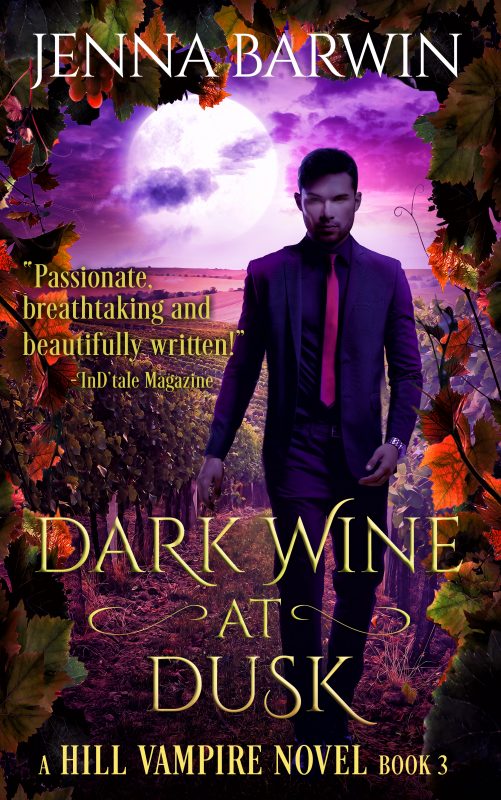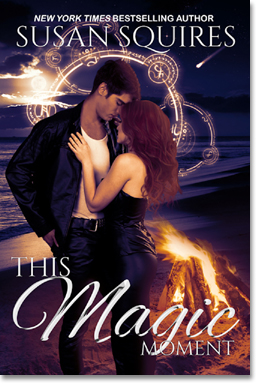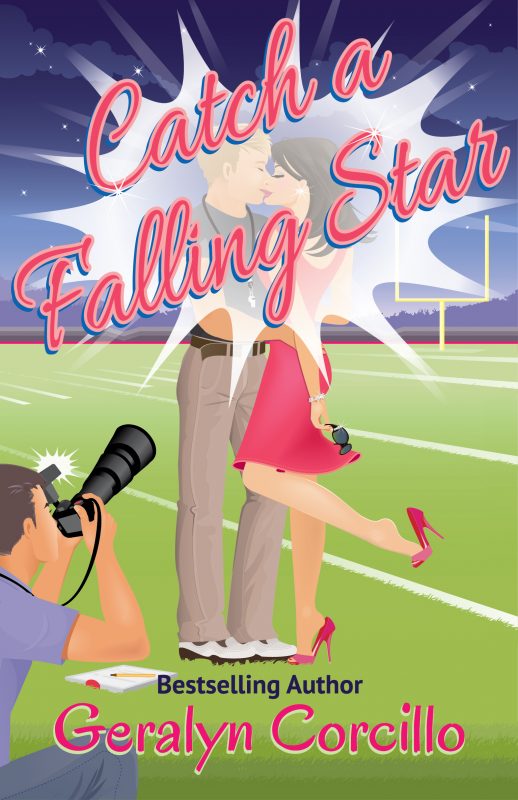From a Cabin in the Woods: New Life by Sally Paradysz
August 13, 2017 by Sally Paradysz in category From a Cabin in the Woods by Members of Bethlehem Writers Group tagged as life, nature, Sally Paradysz, writing
The fawns are here!
On my wooded acreage here in Bucks County I have new life. The fawns are here! So far one of the does has a set of twins, and another doe of my same herd has a new fawn as well. They are not teeny tiny anymore as they grow up quickly, and seemingly right in front of my eyes. Fawns are amazing animals. Just minutes after they are born they are able to nurse, and soon after that, they are able to stand. As quickly as they can travel, sometimes in just hours, the mom leads them away from the birth area and somehow persuades her babies to hide. The fawn/fawns creep under a low growing plant or bush, curls into a ball that would fit onto a dinner plate, and stays there. If she has twins she will lead the other to a different place, she doesn’t want them together because of predators.
What a blessing it is to watch these new fawns grow.
But now they are large enough to follow their moms all around my woods. They drink out of my ground water bath, and nurse right in front of me while I sit on my porch. Never have I seen such gentleness in the eyes of the does. What a blessing it is to watch these new fawns grow. I do feel tension when I see fox or the occasional coyote walking around, but I feel confident that the does are well aware of any danger and will act accordingly and swiftly.
I’m not sure if I have enough wood drying in the field to get me through this coming winter, but these fawns seem to enjoy walking around the pile that is left to split. I still have a lot of work to do this summer, and I’m hopeful that I will get most of it completed while these fawns grow and play.
A sigh of contentment escapes as I continue to live on my “Winnie the Pooh” land, and I think I must be the richest woman in the world…..
Sally
 Sally Paradysz writes from a book-lined cabin in the woods beside the home she built from scratch. She is an ordained minister of the Assembly of the Word, founded in 1975. For two decades, she has provided spiritual counseling and ministerial assistance. Sally has completed undergraduate and graduate courses in business and journalism. She took courses at NOVA, and served as a hotline, hospital, and police interview volunteer in Bucks County, PA. She is definitely owned by her two Maine Coon cats, Kiva and Kodi.
Sally Paradysz writes from a book-lined cabin in the woods beside the home she built from scratch. She is an ordained minister of the Assembly of the Word, founded in 1975. For two decades, she has provided spiritual counseling and ministerial assistance. Sally has completed undergraduate and graduate courses in business and journalism. She took courses at NOVA, and served as a hotline, hospital, and police interview volunteer in Bucks County, PA. She is definitely owned by her two Maine Coon cats, Kiva and Kodi.
Read more about Sally’s life as she builds her home :
Replay…MY CHARACTERS NEED TO BREAKUP…BUT HOW?
August 5, 2017 by Tracy Reed in category Pink Pad by Tracy Reed tagged as breakup, pantser, Paris, plotter, Tracy Reed, vacation, writing I apologize for the repost. I recently returned from vacation and I’m still playing catch up. However this repost, fits in with my vacation. I was in Paris for 12 days…3 days for business and the balance was vacation.
I apologize for the repost. I recently returned from vacation and I’m still playing catch up. However this repost, fits in with my vacation. I was in Paris for 12 days…3 days for business and the balance was vacation.
I love Paris…I thought I would say that.
Anyway, Paris has been a secondary character in some of my books. The series this blog post is about, THE GOOD GIRL Part Deux, spent some time in Paris. On my most recent trip, I tried walking around the city and seeing it in the eyes of my heroine Gabriella. I took some time to make mental notes for the third book in the series. I had hoped to have the book written so when I went I could verify things or make changes. That didn’t happen because I was busy finishing a different book.
My family and I had the pleasure of having French High Tea at the Paris Ritz. French High Tea is completely different from English High Tea. Gotta say, I like the French way better. Back to my story. We arrived early and were given a mini tour then left to explore the hotel on our own. We stopped in a jewelry store and of course I tried on some things. But the staff reminded me of some things I’d forgotten. One, Coco Chanel died at the Paris Ritz. I’m a fashion girl so that resonated with me, big time. Plus we were just a few streets away from the original Chanel Store and Coco’s home. I was in fashion girl heaven. Second, the Ritz is where Princess Diana and Dodi Fayeed were right before they…
I told the staff I was a writer and I was doing a little research for an upcoming book. They was very helpful and offered to give me advice on jewelry and share some of the amazing love stories that had taken place at the hotel. That got me thinking about a new direction for the next installment of THE GOOD GIRL.
All that to say, this is why I chose to replay this post. I’m mentally getting prepared to start THE GOOD GIRL Part Trois.
Have a great summer and see you next month.
MY CHARACTERS NEED TO BREAKUP…BUT HOW?
I have come to a crossroads with a set of characters and I can’t believe the angst I’m feeling or maybe it’s heart-break?
me explain.This past summer, I had the privilege of being in my first box set. YEAH! My contribution to the Fling box set was The Good Girl novella. I wrote this book knowing there would be more to the story. However, I didn’t expect to become as attached to the characters as I am. That fondness is supposed to be reserved for my characters in The Alex Chronicles. After all, we’ve been together for years—that’s not an exaggeration. [Read my previous posts for details on that series. And for the record, The Alex Chronicles is still my baby.]
Gabriella and Phillippe, my heroine and protagonist from The Good Girl, are infants compared to Alexandra [Alex] and Moses, the stars of The Alex Chronicles series. Alex and Moses and I have been through a lot. That’s not an exaggeration. I wrote three books, well four if you count the prequel that can testify to the longevity of our relationship.When it came time to cause havoc between Alex and Moses, I had no problem doing it—yes, I cried inside when he—okay, I can’t tell you anymore because it might spoil it for you. But it was a difficult breakup. However, the possibility of Gabriella and Phillippe breaking up, is causing me great consternation and I don’t know why.
The difference in this proposed breakup might have something to do with the fact that I don’t know what will happen next. I guess that’s what happens when you’re a pantser. Maybe if I was a plotter, I’d feel different. In that respect, I’m like my readers, excited about the surprise outcome, sitting on the edge of my seat wondering what will happen next. Wondering if a HEA will exist for these two. If or when you read part two, a HEA seems inevitable. I think a breakup would be a shock to some readers and a given to others. Either way. I need a major shake up, otherwise the series will become a two hit wonder.
To prepare myself for the inevitable, I’ve started a new playlist complete with sad love songs. I’ve got some wine and popcorn, even reading books with devastating, heartbroken heroines, to get me in the right frame of mind. So far, I just can’t bring myself to break Gabriella and Phillippe up. I could write the breakup, but what if they don’t find their way back to each other. Yes, it would open the door to another book or would it? Another strike against being a pantser—know it all characters. It’s all Gabriella and Phillippe’s fault. Why can’t they be like Alex and Moses. Those two made it perfectly clear how their relationship was going to play out from the moment they met.
I’ve trusted Gabriella and Phillippe through two books. I have to admit, I was surprised at the story they told in Part Two. Trust is the key word here. I have to trust my ability to tell a story that will engage my readers, yet not be boring or predictable. Talk about a challenge. Like Carrie Underwood said, “Jesus take the wheel.”
In my quest to over think, I came up with a few reasons why they would breakup.
Have Phillippe realize he really can’t deal with a non sexual relationship. Which makes him look like the typical self-absorbed Alpha Billionaire in training with a slight French accent.
Then there’s the shocker that she doesn’t want to get married and she just considers this a great first love. Sounds good, but makes her look like a gold-digging whore, I mean tramp.
Or, I could go with the classic, she loses her virginity to him, gets pregnant and he doesn’t want to have anything to do with her or the baby. This would paint her as a naive single mother, with an uncertain future and a whole lot of anger.
Last but not least, a dreaded family secret preventing him from continuing the relationship. Problem with that one is it makes him look a little weak and that goes against the image I’ve created of him.
I would love to see a HEA, but these characters may not. Unlike Alex and Moses, I broke them up a couple of times. Oh crap! I wasn’t supposed to tell you that, but I didn’t tell you how their story plays out. I’ll just say this, I have a playlist loaded with sad love songs.
I also don’t think this angst would be such a big deal if the book hadn’t been as successful as it has. I’ll rephrase that. I hoped it would do well, but this is a surprise blessing. Yes, I called my book that’s packed with a few steamy innuendos and a blessing.
About a month before the free promotion, while it was still at regular price, it got to #167 without any promotion. When I did my first KDP Five Free Days, it made it all the way to #2 in one of my categories on Amazon. I stopped trying to figure out why it’s being received so well. And to be honest, I don’t care. I’m just grateful and thankful to God that it is doing well. This little book, is a great gateway to my other books.
Back to my problem, how to deal with my broken heart. Sunday or maybe it was late Saturday night. Anyway, I really started feeling a sense of loss towards this book. Sunday I picked up The Good Girl Part Two and started on the revisions and the more I read, the clearer it became that I needed to do something drastic. I kicked around ideas, all of which caused me more grief than relief. It was well around one in the morning when I gave up fighting, prayed and went to sleep.
Later, when I woke up, during my prayer time, I got a revelation for a possible plot idea. I’m not going to share it, in case those two bossy characters decide they want to go in another direction. I will say this, it will be emotionally painful to write, however, I think it’s going to lead to the perfect next step.
Funny thing, long before the dread of the breakup popped up, another scene began to bounce around my head, and it’s good. At least I think it is. Only problem, once I write it, I think that’s when the real heart-break will come, because it will be the end of Gabriella and Phillippe’s story as I see it. As writers you know a series never really ends, it just gives birth to a another baby.
So I have a few questions for you. How do you handle the breakup of your characters? Do you find it difficult to breakup your characters perfect relationship? Is the road to HEA easy or painful for you?
Tracy Reed
http://readtracyreed.com/
THE GOOD GIRL PART ONE
Gabriella Townsend is by all definition a "Good Girl." Her life is about to change.
More info →What Does the Extra Squeeze Team Think About Prologues?
July 31, 2017 by marianne h donley in category The Extra Squeeze by The Extra Squeeze Team, Writing tagged as advice, prologues, The Extra Squeeze, writing
Ever wonder what industry professionals think about the issues that can really impact our careers? Each month The Extra Squeeze features a fresh topic related to books and publishing.
Amazon mover and shaker Rebecca Forster and her handpicked team of book professionals offer frank responses from the POV of each of their specialties — Writing, Editing, PR/Biz Development, and Cover Design.
What is the publisher/agent attitude towards including a prologue in a romance novel? In ALL my writing classes, workshops, etc (other than romance), the prologue is hated and absolutely discouraged, yet it seems routine with romance. So . . .
What Does the Extra Squeeze Team Think About Prologues?

Rebecca Forster
USA Today Bestselling author of 35 books, including the Witness series and the new Finn O’Brien series.
When I started my career I wrote in a genre I had never read, pitched with a partial and made simultaneous submissions to multiple editors and agents. In other words, I broke every ‘rule’ in the book so I might not be the best one to ask about the prologue rule. That being said, I’m happy to give an opinion – of which I have many if you ask anyone who knows me.
I believe that ‘they’ are not as good a judge of your work as ‘you’. I believe that if there were hard and fast rules about what editors like we wouldn’t have books like “The Girl With The Dragon Tattoo” or genres like chic lit. I believe that if a prologue turned off editors/readers the following books would never have been published or become profitable.
- “Loving Frank” by Nancy Horan
- “The Piano Tuner” by Daniel Mason
- “Montana 1948” by Larry Watson
- “The Name of the Rose” by Umberto Eco
- “Orphan Train” by Christina Baker Kline
- “Water for Elephants” by Sara Gruen
- “The Hours” by Michael Cunningham
- “Shutter Island” by Dennis Lehane
- “The Alchemist” by Paulo Coelho
- “The Promise” by Ann Weisgarber
Yes, prologues are often skipped but if an author wishes to write one then it is the author’s job to make it a compelling piece of the whole. The question is not just is it necessary, but is it critical?
P.S. I have used prologues in three out of my 30+ books. All were published with the prologue intact.
P.S.S. Harry Potter also has a prologue.
Robin Blakely
PR/Business Development coach for writers and artists; CEO, Creative Center of America; member, Forbes Coaches Council.
From a publicity point of view, I care an inordinate amount about the cover of your book and the description of your book; less about whether or not you have a prologue. The only reason the prologue matters to me is if it helps sell the story.
That may sound shallow and even annoying to the craftsman who created the work, but it shouldn’t offend you. The most important part of the PR job depends on the cover and the description…if the first few pages can’t make that cover and description come to life, get rid of it. The first few pages need to pull readers in and keep them engaged in the book. As a creator, if the devise you choose to do that monumental task is a prologue, I support your choice. Just make sure it works and it’s as finely crafted as you can make it. I suspect that somewhere along the way the prologue got a bad name for itself because of shoddy work by writers who didn’t know how to use the device.
If you want to use a prologue, study finely crafted prologues. I want yours to dovetail with your story and with your cover and your book description. It’s all about craftsmanship. In that way, books are like furniture…I only want drawers in furniture if the drawers are constructed properly with joints that dovetail, instead of joints that are cheaply glued or tacked together and fall apart. Books or desks with drawers, If they are made well and work, they do exactly what I need for them to do.

Jenny Jensen
Developmental editor who has worked for twenty plus years with new and established authors of both fiction and non-fiction, traditional and indie.
Prolog: Greek -before, Logos – word
Prologs are out of vogue. Maybe that’s because we want to jump right into a story, not mess about with seemingly extraneous details. More likely it’s because
Prologs have been abused. So often they’re just an info dump – more of a distraction than a component necessary to enjoying the story. I suspect that’s why publishers and editors dislike and discourage Prologs.
Contemporary Romances are stories in the here and now. That’s an aspect of the genre I really love. I want to walk right in and meet the players and watch the love story as it plays out. There really isn’t any need for a set up, a prolog, an information dump. I want to be living the story as it unfolds for the protagonists and the details should be woven into dialog and narrative and keep the story in the active present.
If you must include a prolog first ask yourself:
•Can the reader understand and enjoy the story without this info
•Is it compelling
•Can the info included in the Prolog be conveyed throughout the story in dialog or narrative
•And the question I think is most important for a Prolog: is the information contained so important that the reader must keep that in mind as the narrative unfolds if we are to understand the story. That’s the only reason I can see for a prolog.
But you are the author and this is your story. If a prolog will strengthen the work, then by all means include one. The creative process should not be subject to the whims of fashion. Just be absolutely certain that prolog is necessary.
Let us know what you think about prologues. Do you love them? Do you hate them? Do you read them?
This month’s extra squeeze topic was suggested by APRYL MOHAJERRAHBARI. Thank you Apryl, we hope we answered your question.
If you have a question or topic you would like the Extra Squeeze Team to tackle, please use this contact form.
The Character Must Die
July 22, 2017 by Veronica Jorge in category Write From the Heart by Veronica Jorge tagged as characters, letting go, Veronica Jorge, writing I killed one of the characters in my novel.
I killed one of the characters in my novel.
(It was more like two, but I have no qualms about the second one.)
I came up with a death scene I really liked and just had to use it, so someone had to “go.”
I’m still not sure if it was in the best interest of the story, or if I’m just stuck on having to use a particular description.
As I reflect on the sequence of events and the wording, and debate the character’s fate; to live or not to live? I think about language in general and the nuances contained therein.
The English “goodbye”, like the characters in a book, can be so finite. Here today, gone tomorrow.
In contrast, parting words in other languages encompass a world of possibilities of that which is yet to be experienced. Whether it’s, auf wiedersehen in German, arrivederci in Italian, or hasta luego in Spanish, each expresses the probability, and the hope, that we will meet again. Even the Japanese rarely use sayonara, unless it really is “the end.”
 In life, as in writing and in reading, I prefer the meanings that other languages provide for that interim we call separation. And I would like to think that the characters we create in our imaginations, that eventually inhabit the pages of a book, continue on, not only in our own minds, but in the minds, and perhaps the hearts, of our readers.
In life, as in writing and in reading, I prefer the meanings that other languages provide for that interim we call separation. And I would like to think that the characters we create in our imaginations, that eventually inhabit the pages of a book, continue on, not only in our own minds, but in the minds, and perhaps the hearts, of our readers.
So, if I must terminate one of my characters, I’ll think of them as an old soldier who has faithfully served, and comfort myself with the words of General Douglas MacArthur.
“Old soldiers never die, they just fade away.”
And I realize that no matter how wonderful a story may be, as we grow and change, some of the characters we loved best as writers and readers do fade away and/or are replaced by others.
But, they never really die.
We meet them over and over again in the ways they have touched us and changed us, and have made us different and maybe, even better, for having met them.
See you next time on August 22nd.
 Veronica Jorge
Veronica Jorge
Manager, Educator, and former High School Social Studies teacher, Veronica credits her love of history to the potpourri of cultures that make up her own life and to her upbringing in diverse Brooklyn, New York. Her genres of choice are Historical Fiction where she always makes new discoveries and Children’s Picture Books because there are so many wonderful worlds yet to be imagined and visited. She currently resides in Macungie, PA.
2 0 Read moreStop! 10 Things Writers Shouldn’t Do
July 15, 2017 by Rebecca Forster in category The Write Life by Rebecca Forster, Writing tagged as inspiration, lessons, rules, writing
DON’T EVER. . .
 1.Stop Reading: After a long day of writing, the last thing you want to do is pick up someone else’s book – do it anyway. It will help you relax and keep you motivated – not to mention you might pick up a few literary tricks along the way
1.Stop Reading: After a long day of writing, the last thing you want to do is pick up someone else’s book – do it anyway. It will help you relax and keep you motivated – not to mention you might pick up a few literary tricks along the way
2. Rely on Inspiration: Inspiration is a contact sport. Pound the keys, search the web for topics that are compatible with your story, be proactive about inspiration.
3. Veer From Your Genre: So you want to write the first science fiction, erotic, mystery, romance? Don’t do it. If you want passionate and engaged readers make sure your book can be defined.
4. Get Boring: If you’re bored writing your book chances are that your readers will be bored reading it. Take your book to the top and then go over it. Conflict moves stories.
5. Default to Perfection: Men are fearless, women are sexy and everyone is just too cool for school. Readers want to relate to your characters – imperfections, shortcomings and all.
6. Lose the Through Line: Remember what story you’re writing. If you started out writing about a girl torn between her family and a soldier she loves, don’t go off into political discourse about war.
7. Be Afraid to Cut, Cut, Cut: Cut close to the bone and let the reader see the skeleton of your book instead of burying her in unnecessary description or dialogue. Let a reader’s imagination fill in the rest.
8. Throw in the Towel: The easiest thing in the world is starting a book; the hardest thing is finishing one. The cool thing is that you can do it with just an ounce more determination and patience. Yes, an ounce.
9. Don’t Do it Alone: For some writers a critique group works. For others it’s one trusted voice cheering them on. Writers may live with their fictional characters, but they thrive with a friend(s) who believes in them.
10. Beat Yourself Up: The book isn’t shaping up the way you want? Someone read a chapter and didn’t care for it? Feel like jumping off a cliff? You can spend your time beating yourself up, or beating the keys on your computer. Beat the keys and show the world what you’re made of. We’re all waiting for your book.
2 0 Read more
Affiliate Links
A Slice of Orange is an affiliate with some of the booksellers listed on this website, including Barnes & Nobel, Books A Million, iBooks, Kobo, and Smashwords. This means A Slice of Orange may earn a small advertising fee from sales made through the links used on this website. There are reminders of these affiliate links on the pages for individual books.
Search A Slice of Orange
Find a Column
Archives
Featured Books
DARK WINE AT DUSK
A seductive spy. An alpha vampire. A hidden threat...
More info →THIS MAGIC MOMENT
She knows in her blood and in her bones that her Destiny is a member of the Clan. She must reject him as an enemy. But can she?
More info →CATCH A FALLING STAR
A TV star tells the paparazzi she's engaged to a high school football coach, but she doesn't tell him … because she barely even knows him.
More info →Newsletter
Contributing Authors
Search A Slice of Orange
Find a Column
Archives
Authors in the Bookstore
- A. E. Decker
- A. J. Scudiere
- A.J. Sidransky
- A.M. Roark
- Abby Collette
- Alanna Lucus
- Albert Marrin
- Alice Duncan
- Alina K. Field
- Alison Green Myers
- Andi Lawrencovna
- Andrew C Raiford
- Angela Pryce
- Aviva Vaughn
- Barbara Ankrum
- Bethlehem Writers Group, LLC
- Carol L. Wright
- Celeste Barclay
- Christina Alexandra
- Christopher D. Ochs
- Claire Davon
- Claire Naden
- Courtnee Turner Hoyle
- Courtney Annicchiarico
- D. Lieber
- Daniel V. Meier Jr.
- Debra Dixon
- Debra H. Goldstein
- Debra Holland
- Dee Ann Palmer
- Denise M. Colby
- Diane Benefiel
- Diane Sismour
- Dianna Sinovic
- DT Krippene
- E.B. Dawson
- Emilie Dallaire
- Emily Brightwell
- Emily PW Murphy
- Fae Rowen
- Faith L. Justice
- Frances Amati
- Geralyn Corcillo
- Glynnis Campbell
- Greg Jolley
- H. O. Charles
- Jaclyn Roché
- Jacqueline Diamond
- Janet Lynn and Will Zeilinger
- Jaya Mehta
- Jeannine Atkins
- Jeff Baird
- Jenna Barwin
- Jenne Kern
- Jennifer D. Bokal
- Jennifer Lyon
- Jerome W. McFadden
- Jill Piscitello
- Jina Bacarr
- Jo A. Hiestand
- Jodi Bogert
- Jolina Petersheim
- Jonathan Maberry
- Joy Allyson
- Judy Duarte
- Justin Murphy
- Justine Davis
- Kat Martin
- Kidd Wadsworth
- Kitty Bucholtz
- Kristy Tate
- Larry Deibert
- Larry Hamilton
- Laura Drake
- Laurie Stevens
- Leslie Knowles
- Li-Ying Lundquist
- Linda Carroll-Bradd
- Linda Lappin
- Linda McLaughlin
- Linda O. Johnston
- Lisa Preston
- Lolo Paige
- Loran Holt
- Lynette M. Burrows
- Lyssa Kay Adams
- Madeline Ash
- Margarita Engle
- Marguerite Quantaine
- Marianne H. Donley
- Mary Castillo
- Maureen Klovers
- Megan Haskell
- Melanie Waterbury
- Melisa Rivero
- Melissa Chambers
- Melodie Winawer
- Meriam Wilhelm
- Mikel J. Wilson
- Mindy Neff
- Monica McCabe
- Nancy Brashear
- Neetu Malik
- Nikki Prince
- Once Upon Anthologies
- Paula Gail Benson
- Penny Reid
- Peter J Barbour
- Priscilla Oliveras
- R. H. Kohno
- Rachel Hailey
- Ralph Hieb
- Ramcy Diek
- Ransom Stephens
- Rebecca Forster
- Renae Wrich
- Roxy Matthews
- Ryder Hunte Clancy
- Sally Paradysz
- Sheila Colón-Bagley
- Simone de Muñoz
- Sophie Barnes
- Susan Kaye Quinn
- Susan Lynn Meyer
- Susan Squires
- T. D. Fox
- Tara C. Allred
- Tara Lain
- Tari Lynn Jewett
- Terri Osburn
- Tracy Reed
- Vera Jane Cook
- Vicki Crum
- Writing Something Romantic
Affiliate Links
A Slice of Orange is an affiliate with some of the booksellers listed on this website, including Barnes & Nobel, Books A Million, iBooks, Kobo, and Smashwords. This means A Slice of Orange may earn a small advertising fee from sales made through the links used on this website. There are reminders of these affiliate links on the pages for individual books.

















































